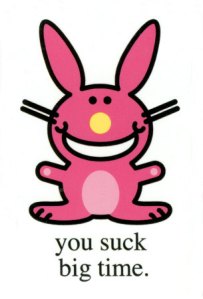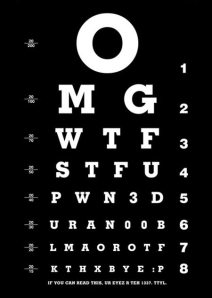“In the Blogosphere” is a series, which lists links to writing-related blogs I’ve stumbled upon throughout a given week (usually).
I’m admittedly behind with my Blogosphere posts—I have about 50 links saved, dating all the way back to the summer (oh noes!)—but they are all still worth a look. I’m getting there!
CRAFTING A WINNER
At Kidlit.com, über fantastic Andrea Brown agent Mary Kole talks about “prime real estate”—and the three places she considers that to be in your manuscript. Um—sold!
Here, Kole says, if your characters shoot glances, you should be shot!*
In her guest post on Writer Unboxed, the ZOMG-awesome Laura Espinosa (a Write-Brainiac!) tells how getting in touch with your inner actor can help you iron out those pesky, hard-to-write scenes.
Q&A
This question has come up with some international Write-Brained Network folks—yes, we are global, people!! Here, Mary Kole (yes, again—she’s on fire!!) discusses how to handle your manuscript if you are an international writer and/or writing international settings.
Paranormalcy author, the adorable Kiersten White answers reader questions and dishes on how/when to query as well as how to make blog follower friends.
Here, the now-former agent extraordinaire, author Nathan Bransford, debunks the top 10 myths about the future of e-publishing.
“RE” STUFF (-VISION & -SOURCES)
Many folks have tackled this subject, but here is the Suzie-Townsend-repped Kristin Miller of YA Highway’s take on how to revise and resubmit.
Here, on See Heather Write, Heather Trese outlines some of her incredible takeaways from a session on revising with Gennifer Choldenko. (Really really faboo post!)
The fabulous duo at Adventures in Children’s Publishing (Martina Boone and Marissa Graff) details the seven basic plot types in this equally as fabulous post. Where does yours fit?
If you’re looking for some awesome Web resources for writers, the good folks of EduChoices.org have compiled 50 of the best in terms of reference; fiction, nonfiction, and freelance writng; and writing in general.
ATTRACTION
Here, author Jody Hedlund suggests how to attract readers to your bloggity blog. (<—Well, she doesn’t actually call it that!)
In her guest post over at Writer Unboxed, Writer’s Digest and the University of Cincinnati’s own Jane Friedman says specificity sets apart the professionals from the amateurs.
Over at the Huffington Post , Denise Brodey gives a five-point plan on how to sell books. Having a Twitter account won’t do it alone.
 WHATCHOO TALKIN’ ABOUT, WILLIS?
WHATCHOO TALKIN’ ABOUT, WILLIS?
Write Anything’s Annie Evett did a neat little four-part series on dialogue. Check it out: part one, part two, part three, & part four.
Over at Inky Fresh Press, the OMGiDONTknowWHATi’dDOwithoutHER Write-Brainiac Bridgid Gallagher offers five tips on how to improve that elusive thing everyone wants to grab hold of: voice.
On her blog, freelancer and YA writer Heather Trese does it again, relaying valuable info she learned about voice during a workshop with Rachel Vail.
THERE THERE
Here, the inimitable T.H. Mafi (Tahereh), delivers the best writerly pep talk evarrr. Bookmark it, folks. Fo’ realz.
Feeling a little bipolar about your manuscript? Jody Hedlund says that’s normal, and she offers suggestions on how to deal.
BECAUSE IT’S AWESOME
At Querypolitan, the fabulous Kate Hart *just may* be on to something: Edward Cullen and Vanilla Ice—one and the same?
ALSO?
Please check out my new Web site. 🙂
Happy weekend!!!
—
*OK—she doesn’t quite put it *that* way!



































